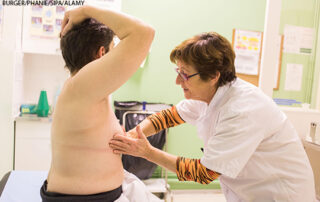Blood test for many cancers could potentially thwart progression to late stage in up to half of cases
Adding this test to usual care yearly or every two years could improve patient outcomes A single blood test, designed to pick up chemical signals indicative of the presence of many different types of cancer, could potentially thwart progression to advanced disease while the malignancy is still at an early stage ...











